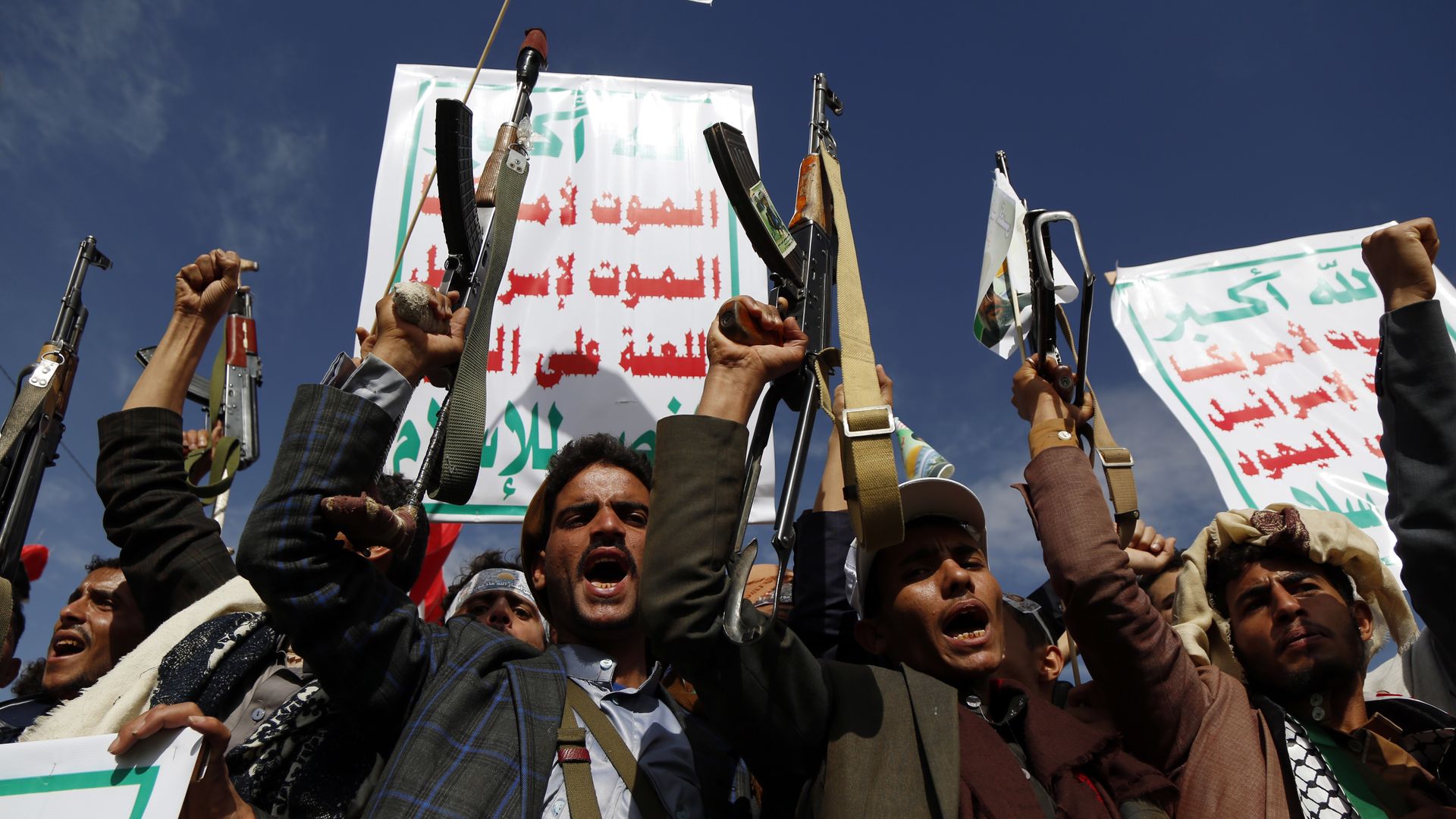Iran sees growing dividends from support for Yemen's Houthis
Add Axios as your preferred source to
see more of our stories on Google.

Houthi loyalists marching in Sanaa, Yemen. Photo: Mohammed Hamoud/Getty Images
Iran's partnership with the Houthi rebels in Yemen — heralded this week by a hardline Iranian newspaper as "the battle of destiny in the south" — has become one of its most successful campaigns across the Middle East.
Why it matters: At surprisingly little cost to Tehran, the Houthis have waged a drawn-out war straining the coffers and reputation of Saudi Arabia, Iran's main regional rival. The conflict has also afforded Tehran a foothold on the Arabian Peninsula, allowing it to threaten maritime traffic on the Red Sea.
Where it stands: In exchange for Iranian weaponry, the Houthis have raised funds for Iran’s increasingly cash-strapped proxy, Lebanese Hezbollah; persecuted members of the Baha’i faith; targeted U.S. assets; and even praised Iran’s supreme leader while seeking diplomatic relations.
Background: The Houthi movement is an insurgent force that seized the Yemeni capital in 2014, ousted the national government and has since battled a Saudi-led military coalition.
- The Houthis are of the Zaydi or “fiver” sect of Shiite Islam — distinct from Iran's Khomeinist interpretation of Twelver Shiism — but those differences have not deterred growing political and material support from Tehran.
Between the lines: While not every missile in Yemen is Iranian, Iran has become the most significant foreign force multiplier for Houthi missile capabilities since the war began.
- Iran proliferated to the Houthis a Scud missile variant dubbed the Burkan-2H, enabling them to target Riyadh.
- On Aug. 1, Houthis reportedly launched a Burkan-3 — the group's first deployed medium-range ballistic missile — at Dammam in eastern Saudi Arabia, almost 1,200 kilometers (~750 miles) from Houthi-controlled territory.
- Iran’s Islamic Revolutionary Guard Corps likely played a role in the development, modification or transfer of this system, which reportedly shares similarities with North Korean projectiles.
The bottom line: Increasingly, Houthi attacks — whether by missile or drone — can be read not as mere combat, but as part of Iran's broad backlash against the U.S. "maximum pressure" campaign and the posture of Iran's Saudi rivals.
- The longer the conflict on the Arabian Peninsula rages, the more the Houthis will deepen their partnership with Tehran.
Behnam Ben Taleblu is a senior fellow at the Foundation for Defense of Democracies.
